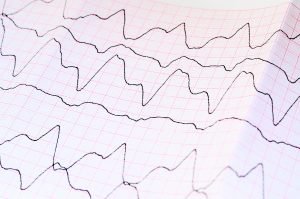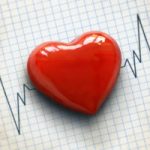 Heart palpitations could be caused by a number of different factors, but if you’re wondering how to stop heart palpitations, well, we have some tips for you. Heart palpitations can be a result of external stimulants, psychological factors, and hormonal or biological conditions. More specific causes of heart palpitations include thyroid conditions, anemia, strenuous exercise, low blood sugar, and excessive caffeine intake, just to name a few.
Heart palpitations could be caused by a number of different factors, but if you’re wondering how to stop heart palpitations, well, we have some tips for you. Heart palpitations can be a result of external stimulants, psychological factors, and hormonal or biological conditions. More specific causes of heart palpitations include thyroid conditions, anemia, strenuous exercise, low blood sugar, and excessive caffeine intake, just to name a few.
Oftentimes, heart palpitations are a symptom on their own, but on other times they can accompany other symptoms. Recognizing heart palpitations as a symptom can help you narrow in on the cause of yours.
Advertisement
The good news is, in many cases, heart palpitations can be addressed with simple lifestyle changes, which we will list for you below.
What causes heart palpitations?
We mentioned just a few causes of heart palpitations already, but of course, that’s not an exhaustive list. Physical stress and emotional stress on the body can contribute to heart palpitations. Struggling to meet a deadline or running up a flight of stairs may get your heart racing.
What we consume can also affect the heart – namely, caffeine, nicotine, and alcohol. Furthermore, some medications taken to treat other conditions like asthma inhalers or over-the-counter medications can have the same heart-racing effect.
Sometimes, underlying heart conditions – such as thyroid problems, low blood sugar, low blood pressure, and anemia – can lead to heart palpitations.
Other causes of heart palpitations include lying down and hormonal changes.
How to stop heart palpitations?
 Valsalva maneuver: This is an ancient technique known to restore heart rhythm. This position stimulates the vagus nerve, which can be a possible cause for heart palpitations. To complete this maneuver, pinch your nose, close your mouth, and try to breathe out forcibly. At first, your heart rate will accelerate, but it will be followed by a slowing down. This technique is not advised for people with heart disease.
Valsalva maneuver: This is an ancient technique known to restore heart rhythm. This position stimulates the vagus nerve, which can be a possible cause for heart palpitations. To complete this maneuver, pinch your nose, close your mouth, and try to breathe out forcibly. At first, your heart rate will accelerate, but it will be followed by a slowing down. This technique is not advised for people with heart disease.
Coughing: Coughing vigorously for a few minutes can help to slow down your heartbeat. This builds up pressure in the chest and thus helps normalize your heartbeat.
Deep breathing: Deep breathing can aid in stress and anxiety, which are two causes of heart palpitations. Sit comfortably cross-legged and take a slow, deep breath through the nose, expanding your chest. Breathe out slowly from your mouth and repeat until you are calm again.
Cold water: Low fluid intake can lead to heart palpitations, so drinking cold water could help regulate it. Cold water also helps reduce stress and anxiety.
Electrolytes: Important electrolytes for the heart are potassium, calcium, sodium, and magnesium. When these electrolytes are out of balance, they can lead to heart palpitations. A blood or urine test can confirm if you have an electrolyte imbalance, and if you do you can consume foods rich in these minerals or take supplements.
Magnesium intake: A deficiency in magnesium could lead to heart palpitations. Magnesium-rich foods include kale, nuts, quinoa, bananas, and cold water fish.
Honey, lemon, and guava: Consuming a ripe guava upon awakening on an empty stomach can ease heart palpitations and anxiety. Mixing honey with water and lemon and drinking it before bed can ease tremors.
Exercise: Although strenuous exercise may trigger heart palpitations, exercise can also have the opposite effect, too. Strengthening the heart muscle, which is what exercise does, can make it work more efficiently. Exercise also is a great way to strengthen the parasympathetic nervous system and reduce excessive adrenaline release. The parasympathetic nervous system is responsible for calming the body and heart down.
Are heart palpitations dangerous?
More often than not, heart palpitations are not dangerous and are often linked to a temporary condition with a very simple solution. If heart palpitations are a new symptom for you and cannot be pinned on exercise, stress, or diet, and if you are experiencing other symptoms along with heart palpitations, you should see your doctor.
When to see a doctor?
You should see a doctor if heart palpitations are followed by nausea, chest pains, dizziness, shortness of breath, upper back pain, arm or jaw pain, or an intense sensation of pressure on the chest. This indicates a more serious condition that may require medical attention.
Advertisement
If your normal heart palpitations begin to change in frequency, it’s another indicator that you should visit your doctor.
Related: Heart palpitations causes, symptoms, and treatments
